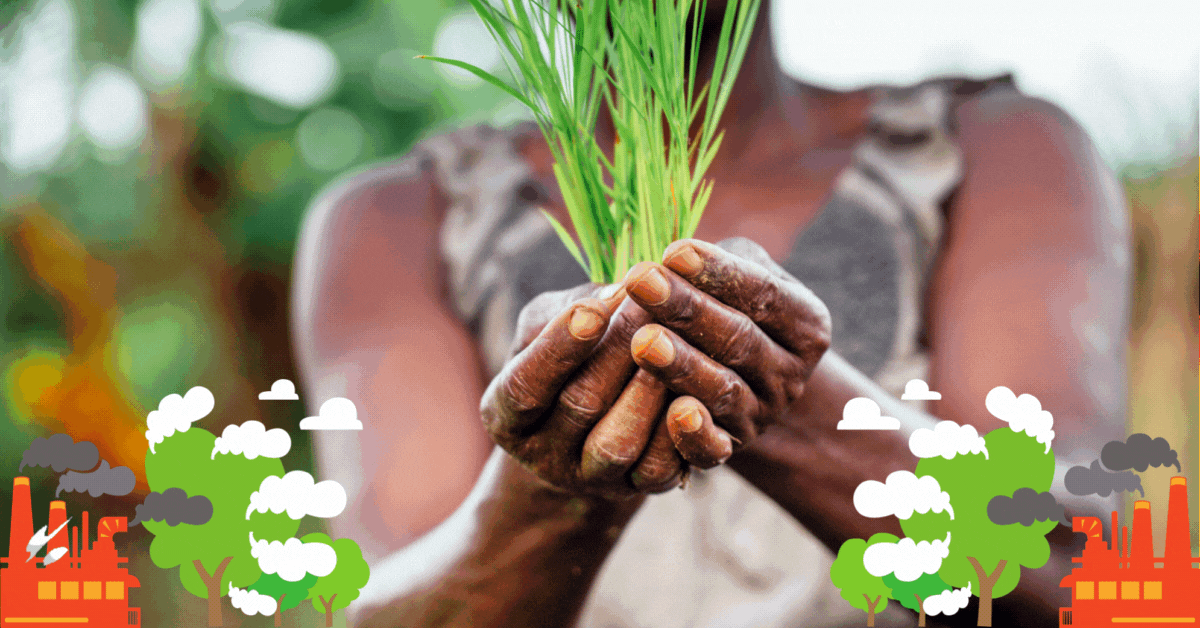Could carbon offset schemes become a hindrance to women’s land rights in East Africa?
- Carbon offset programmes may present a threat to women’s equal land rights if policies are not enforced to protect women’s ownership and control, writes Anastasia Mbatia, a Senior Technical Manager for Agriculture at Farm Africa.

The 27th United Nations Climate Change Conference or COP27 will be held in Sharm el-Sheikh, Egypt in a mere four months. During that conference, the issue of carbon offset schemes in Africa will be raised. Carbon offsetting can be particularly beneficial to smallholder farmers and at Farm Africa, we have seen some of the benefits of carbon sales flowing directly to rural communities. But for women, offsets could present a barrier to land rights. Simultaneously, a meteorological drought last seen 40 years back will put over 28 million on the brink of starvation in the East and Horn of Africa.
Africa, despite its low contribution to climate change, is grappling with its impacts. The continent hosts a third of the world’s most vulnerable to hunger. Africa’s population is reported to constitute 25% of the world’s population by 2050. But after a decade of working to achieve the promises of the UN’s Sustainable Development Goals, the world is not on track to achieve SDG 1: End Poverty and SDG 2: Zero Hunger. Global efforts to avert the climate crisis are urgent but if we are not careful, what will they translate to for African women?
Carbon offsetting refers to a reduction in greenhouse gas emissions or an increase in carbon storage that is used to compensate for emissions that occur elsewhere. Carbon offset schemes will benefit smallholder farmers through land conservation practices that increase their resilience to climate shocks. However, there’s a risk that carbon offsets ignore the challenges of women land owners. The value of land is likely to increase when the carbon offset schemes gain traction.
Consider Wamwari, a widow and mother of four living in Embu, Kenya. She inherited one acre of land from her late husband’s five-acre estate. In African communities, land is a large determinant of wealth creation yet women own less than 10%. Access to, ownership and control over land are essential to secure livelihoods in rural areas. In traditional setups, women were excluded from land ownership and allowed access through family ties. Land ownership for women translates to income growth, better household nutrition and higher education attainment by girls. The rise in land value presents a risk for women like Wamwari: disinheritance.
Despite being excluded from land ownership, women in rural East Africa provide more than 62% of the farm labour and are burdened with 80% of household food security needs. Agricultural productivity for female farmers is 20%-30% lower compared to that of male farmers because of gender gaps in resource access. Research shows that farm productivity will improve by 28% if women are involved in farming decisions and have control over land. Land laws and policies to safeguard women’s access to land, control over and preventing exclusion have been stipulated but women’s land rights tend to stay at plans and policy levels, hardly implemented.
Women’s tenure and access to land are important for reducing rural poverty, enhancing food security and stimulating agricultural development. Carbon offset programmes may present a threat to women’s equal land rights if policies are not enforced to protect women’s ownership and control. The triple wins for environment, development and business is a popular narrative within carbon offsetting. The narrative risks neglecting groups who will pay for carbon offsetting by losing land access and becoming invisible.
Carbon offset programmes should strive to empower women but the land requirement constitutes a barrier. Achieving women’s land rights is a key part of the gender-responsive implementation of the 2030 Agenda for Sustainable Development. Commodification and financialization of land in today’s world will exacerbate the undermining of women’s access to land, productive resources and human rights. Principles and standards derived from international human rights instruments should guide carbon offset legislation, policy processes and programming.
Carbon offset laws should complement the national constitutions in recognizing women’s equal rights in access to, use of and control over land and other productive resources. If well implemented, women will have an equal and independent right to acquire, control, use and transfer land. Proven success in Farm Africa’s Bale Eco-region REDD+ project in Ethiopia that introduced gender-inclusive bylaws resulted in increased women’s participation in both forest conservation and decision-making over carbon credits spend. When gender-inclusive carbon offset laws and policies are implemented to safeguard women from discrimination and exclusion in land rights, widows like Wamwari can fully realize the triple wins promise of carbon offsetting.
This article is published as part of the Op-ed Project.
Edited/Reviewed by Cassandra Roxburgh, Uzoma Ihejirika, and Caleb Okereke.
Anastasia (Ana) M'bati is a Public Voices Fellow on Advancing the Rights of Women and Girls with the OpEd Project. She serves as an agronomist and a senior Technical Manager for Agriculture at Farm Africa, an organization that works with vulnerable communities in East Africa in agriculture and environmental protection. Ana is a champion for sustainable agriculture and has supported agriculture development in various roles in South Sudan, Tanzania, Kenya, Ethiopia and Uganda.



